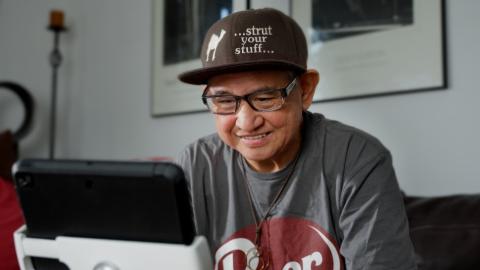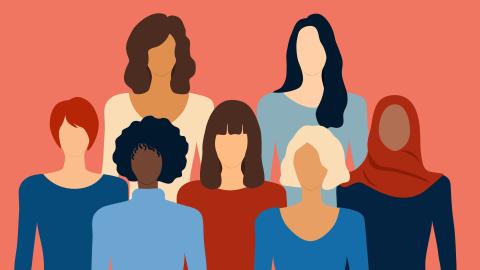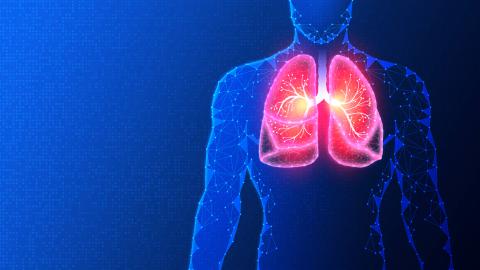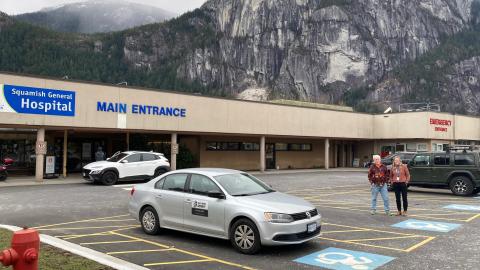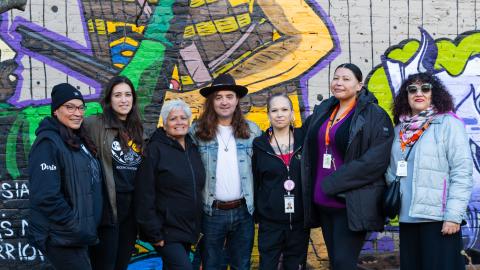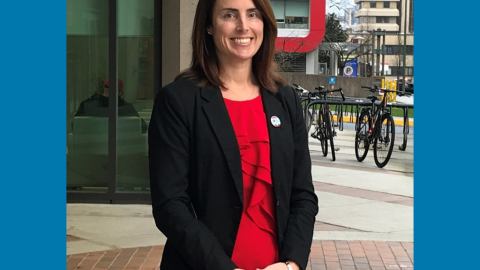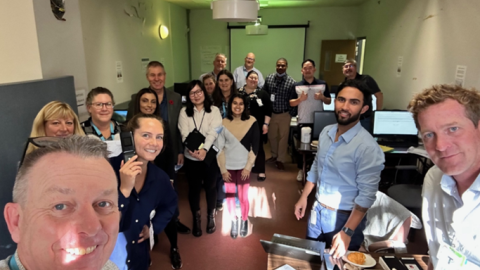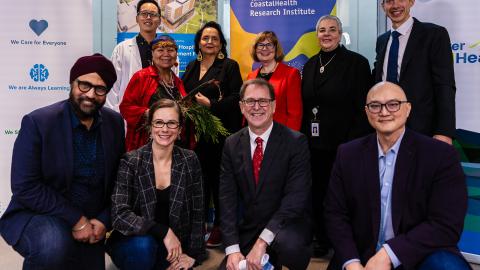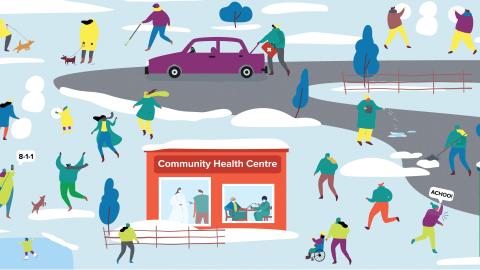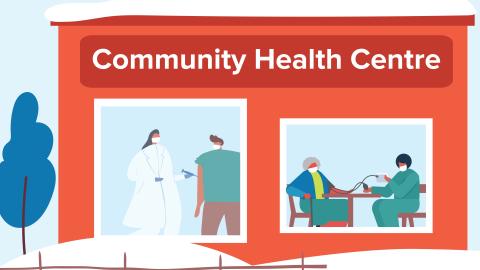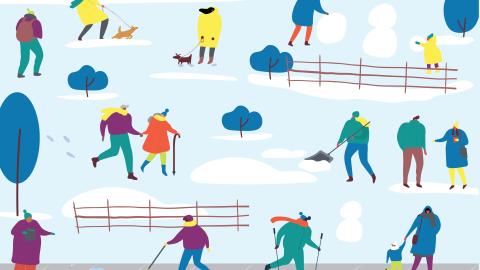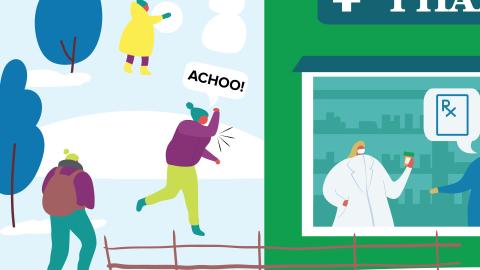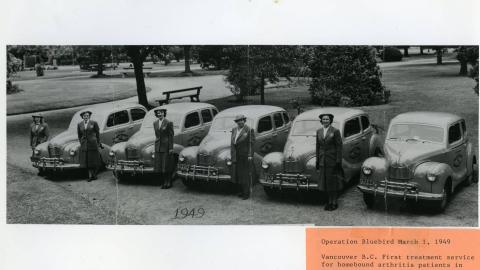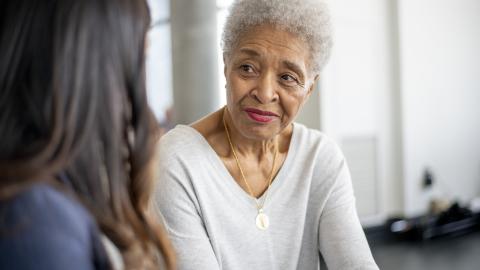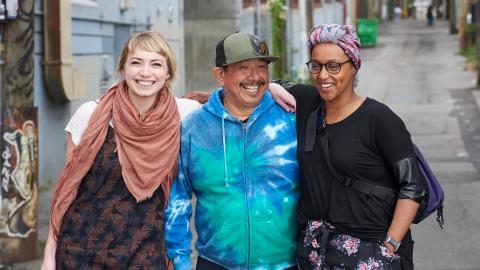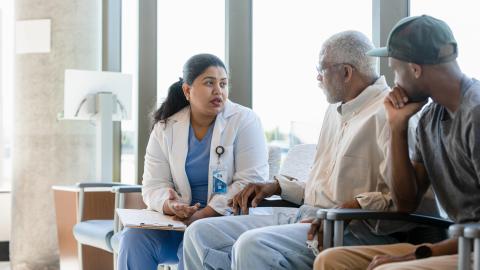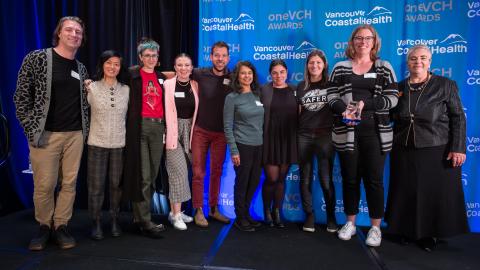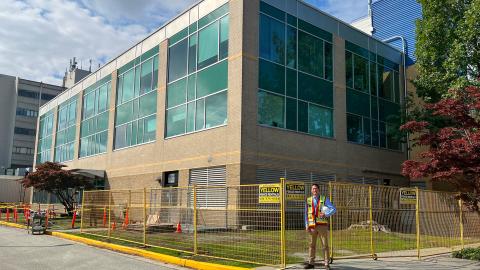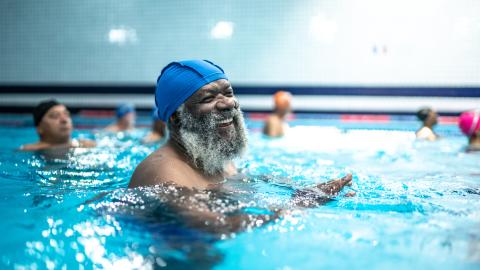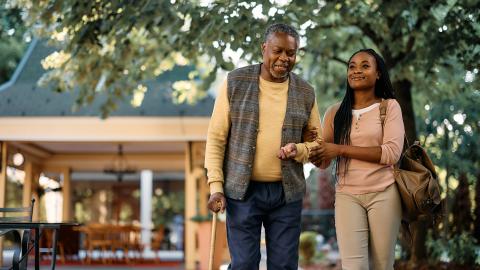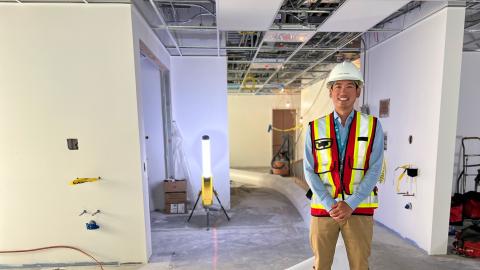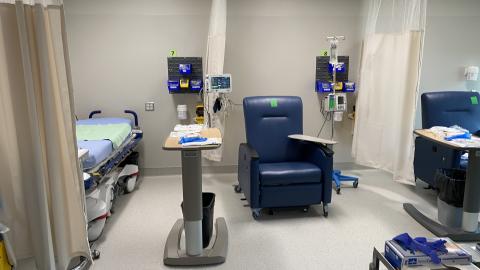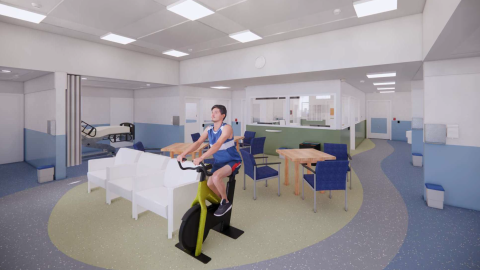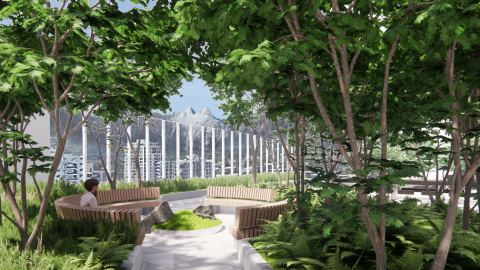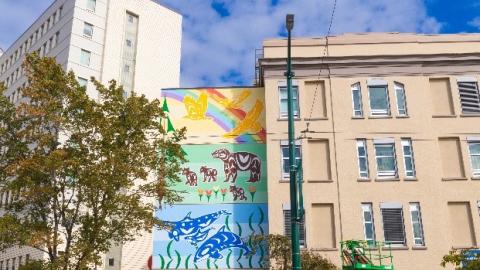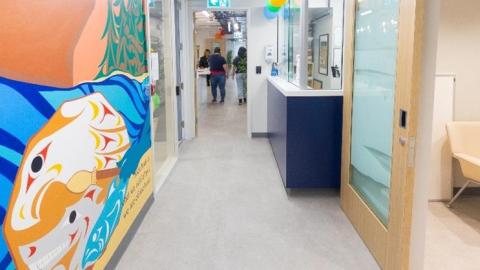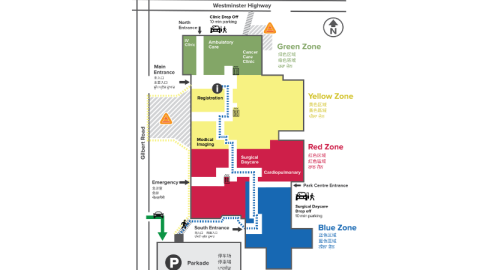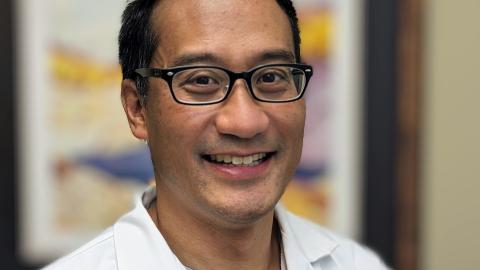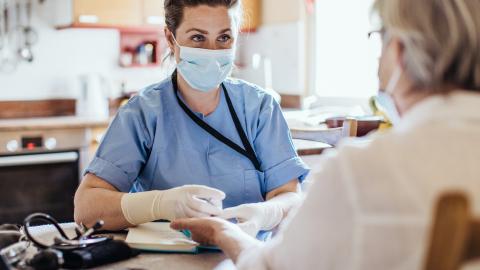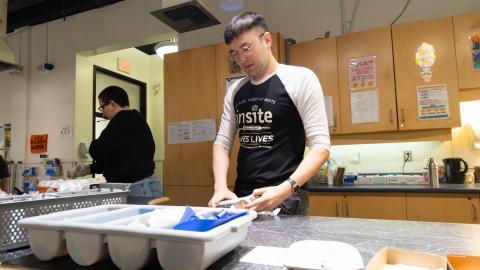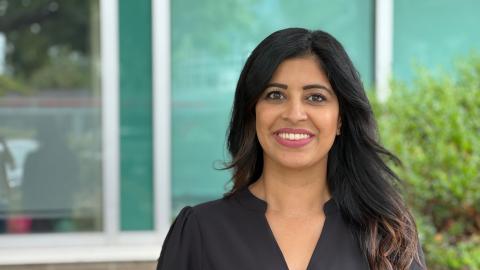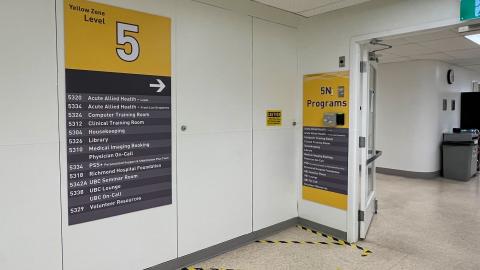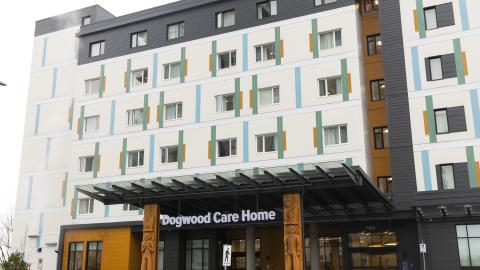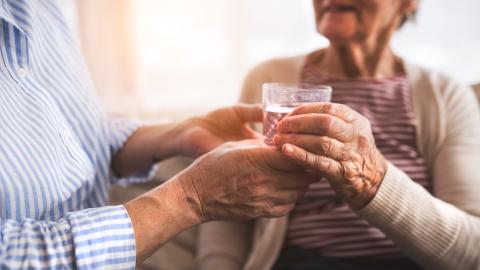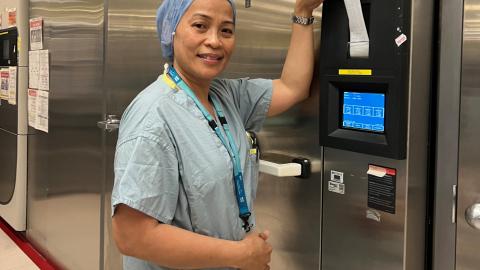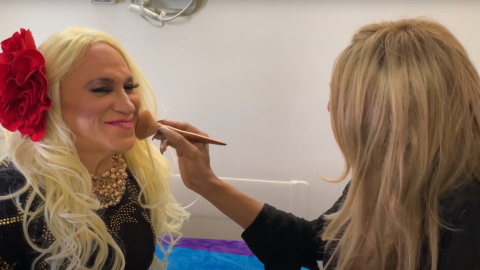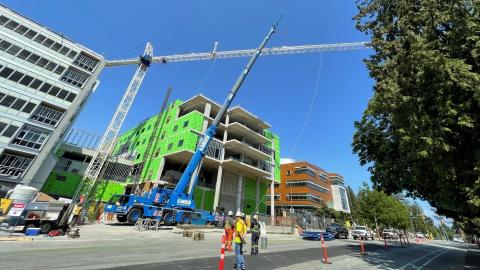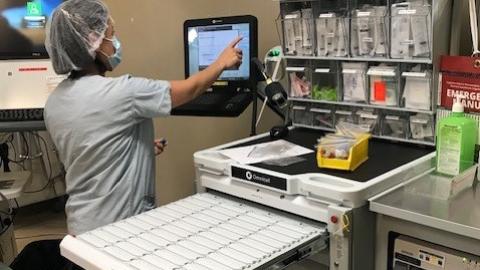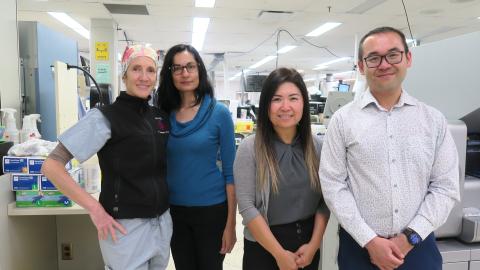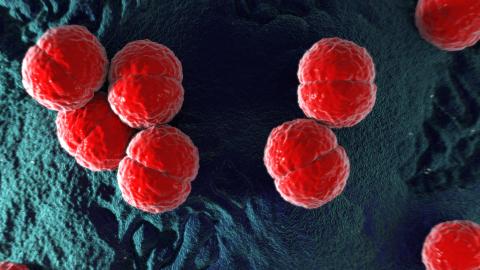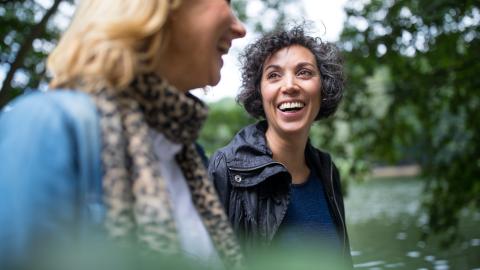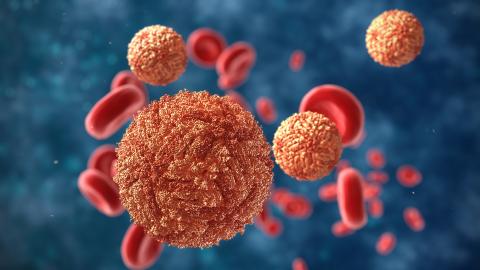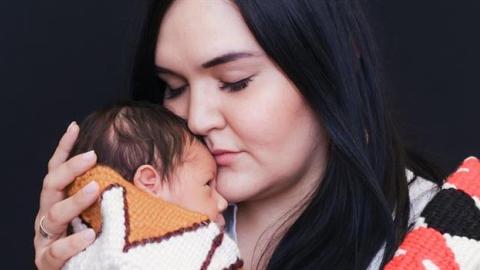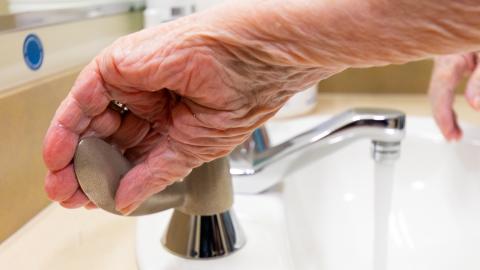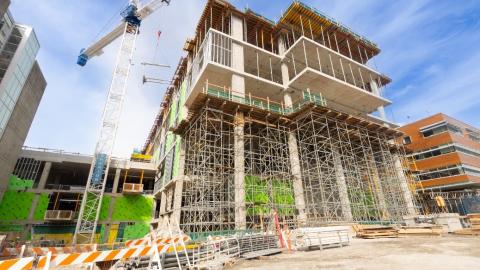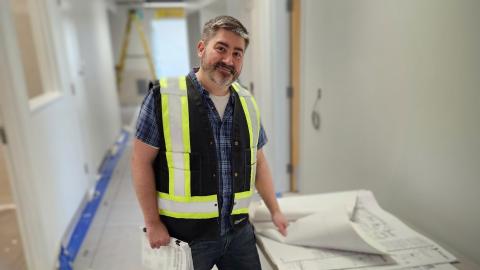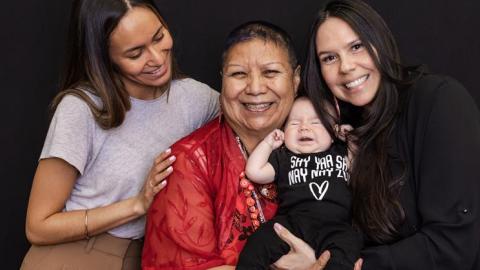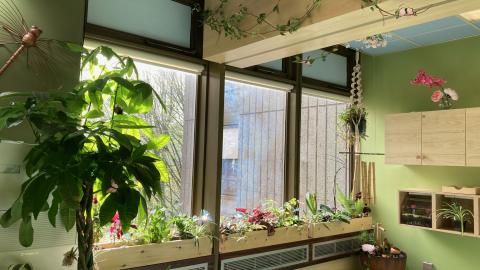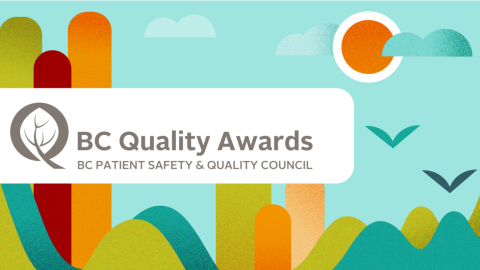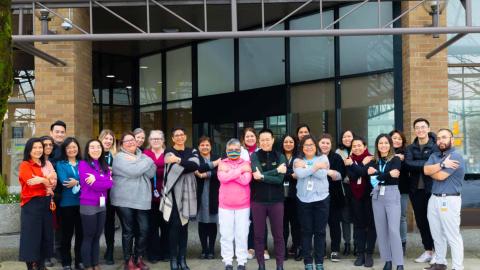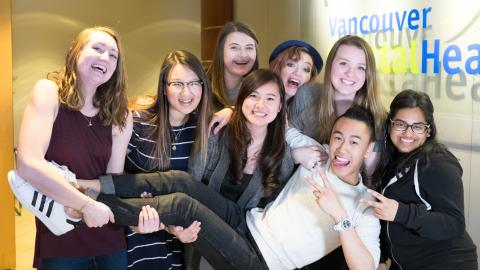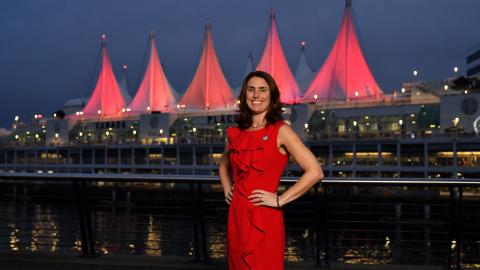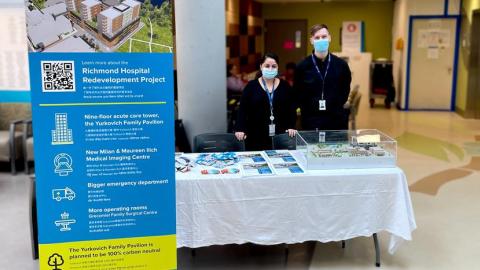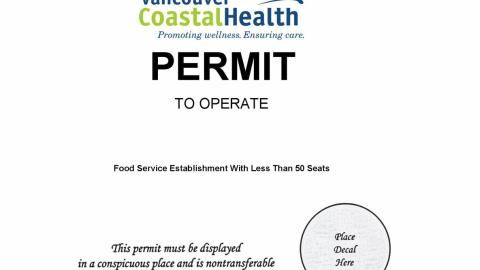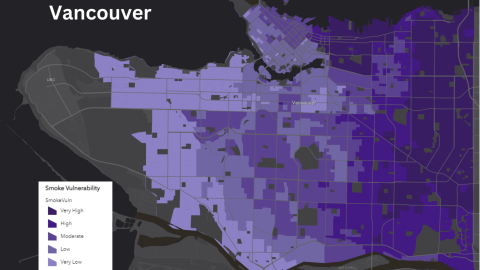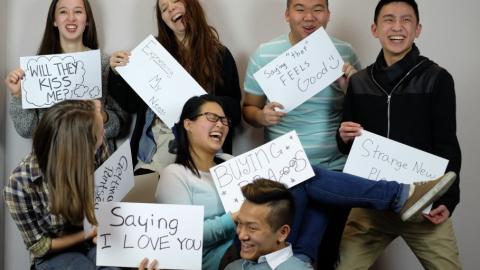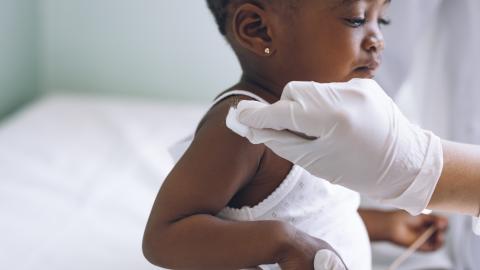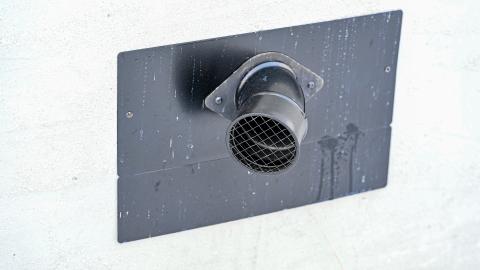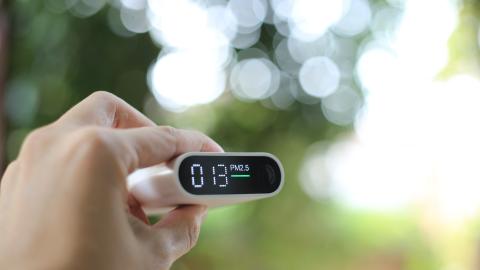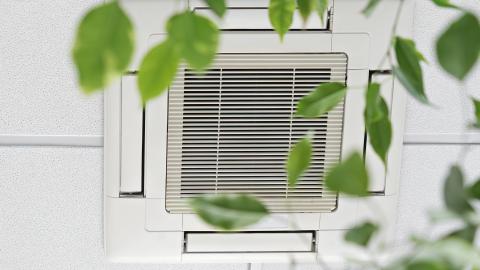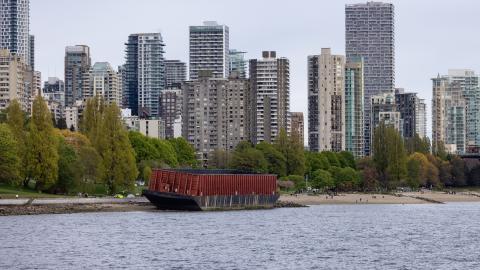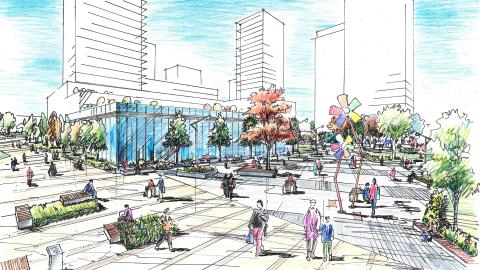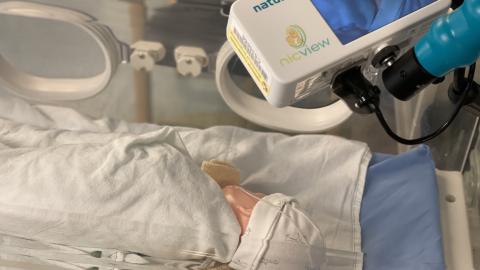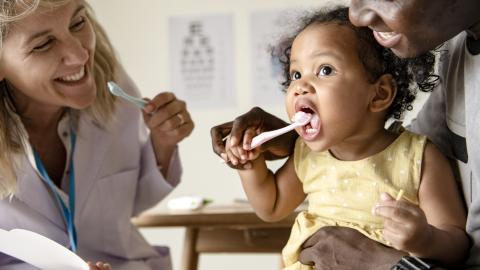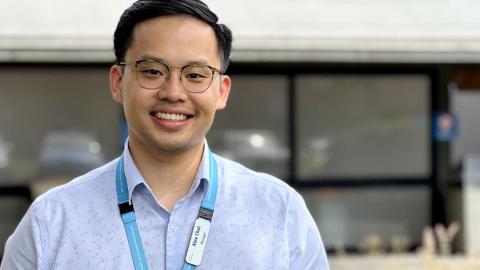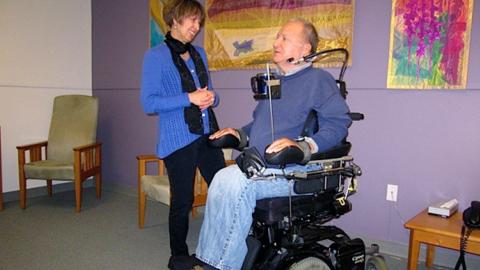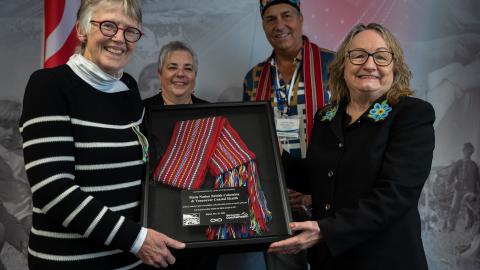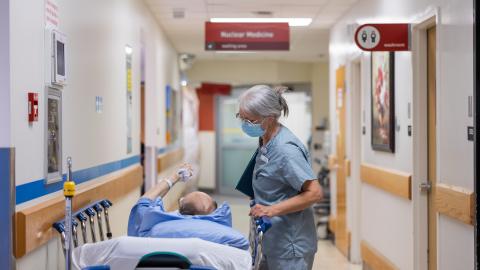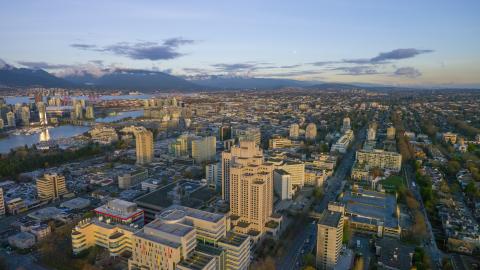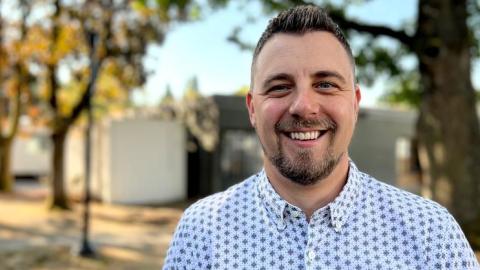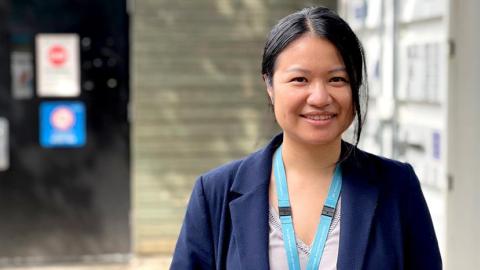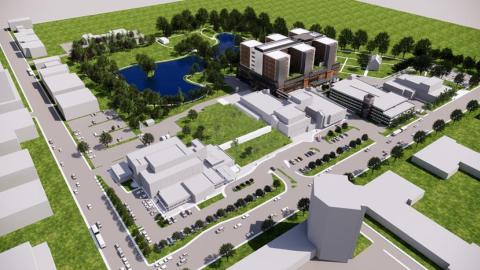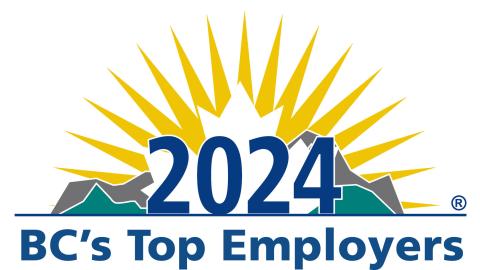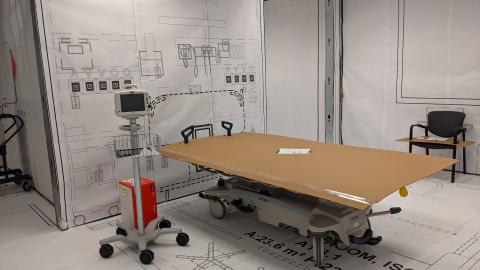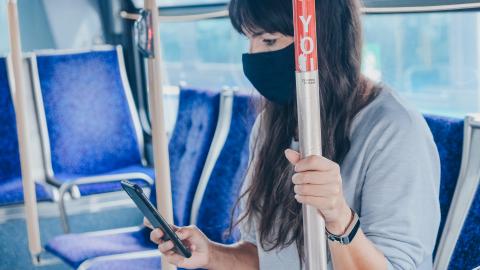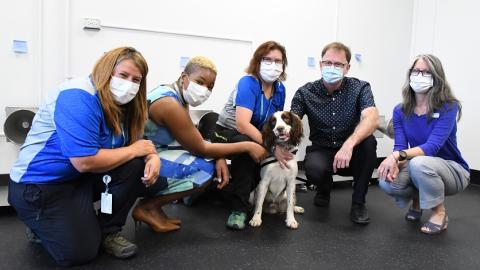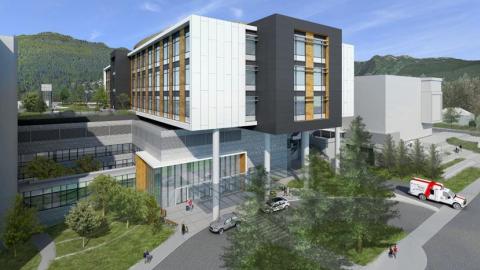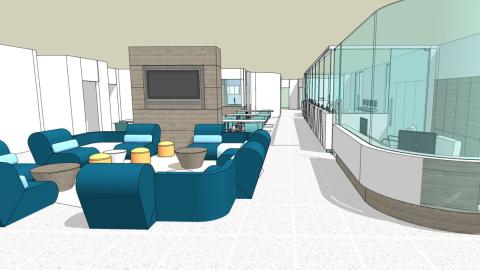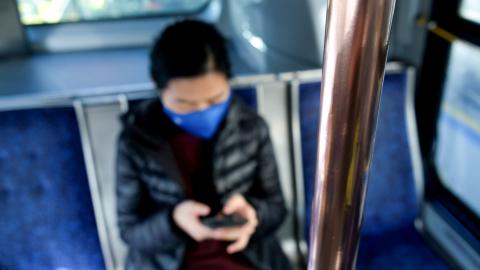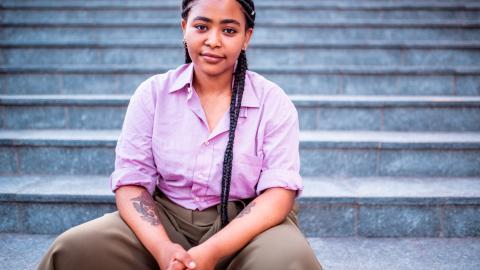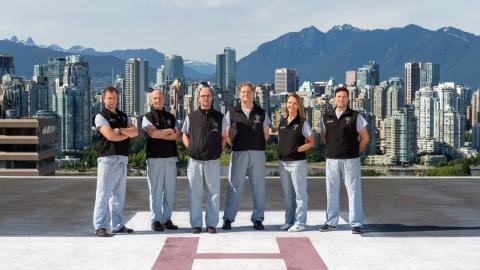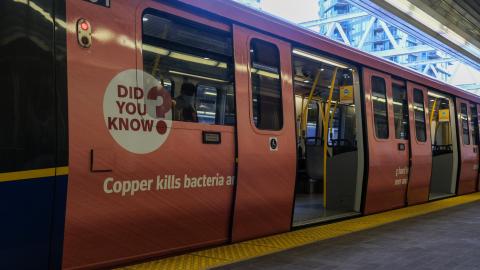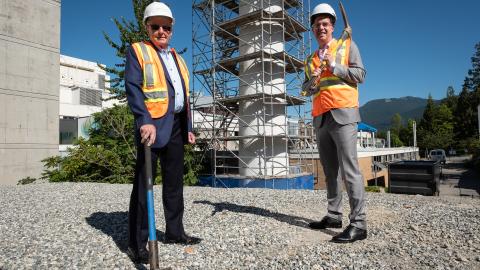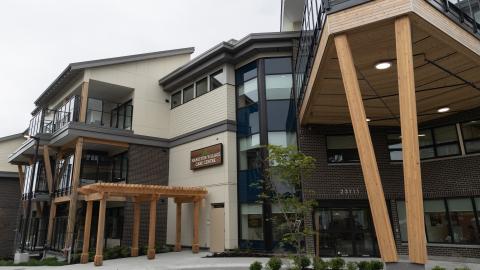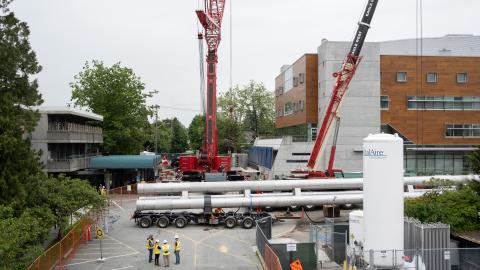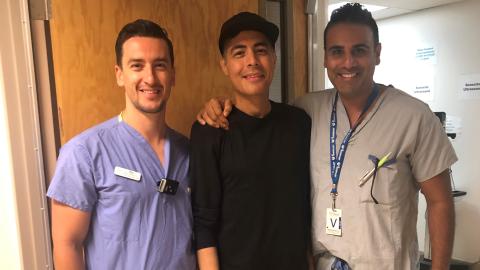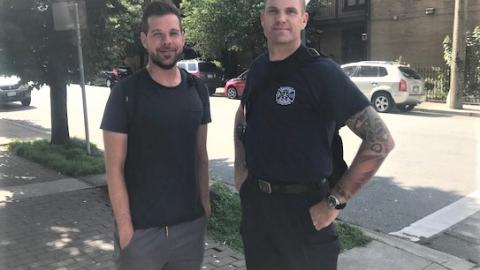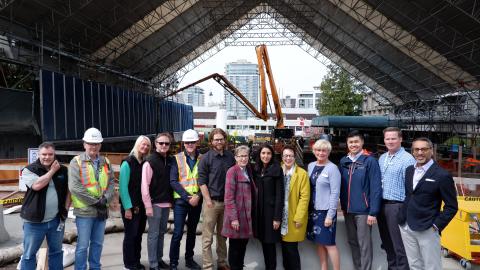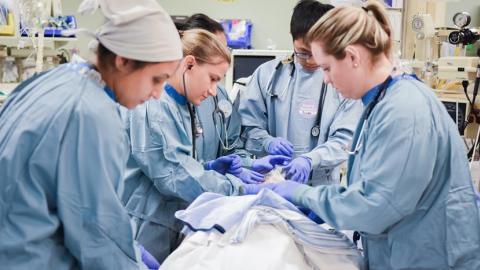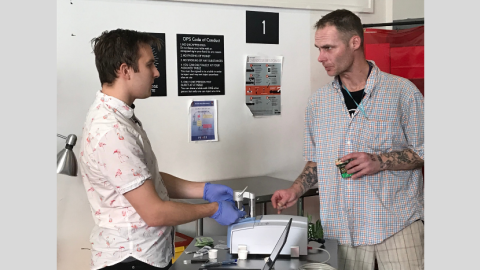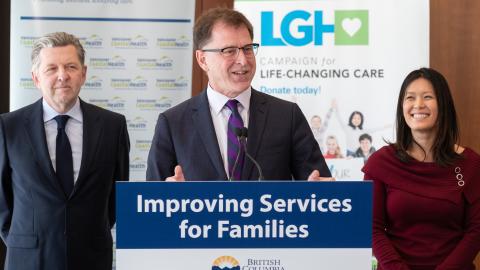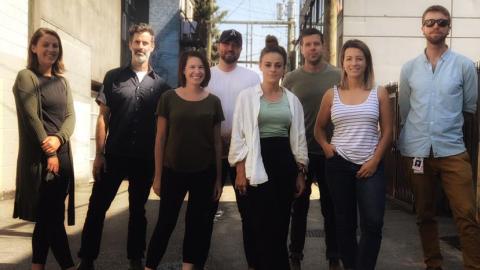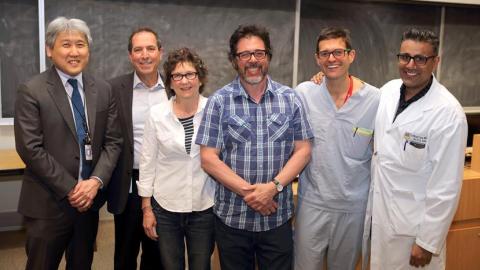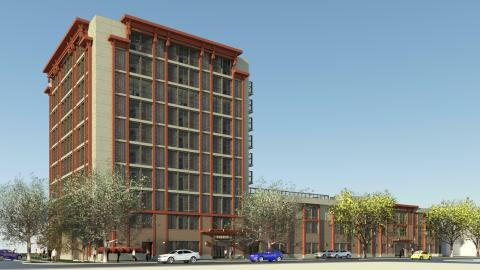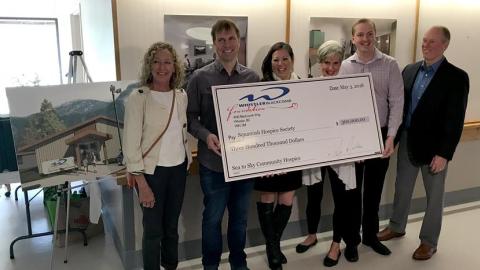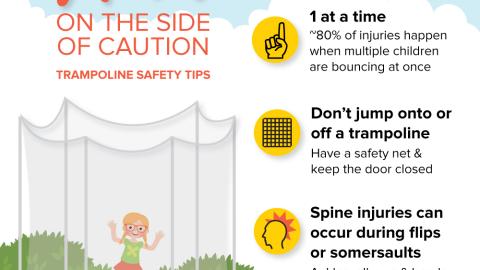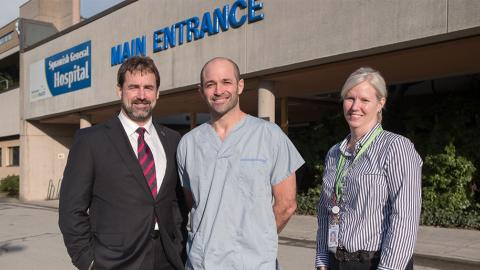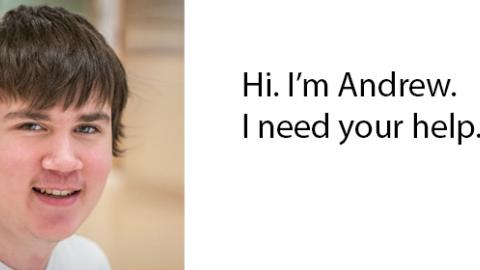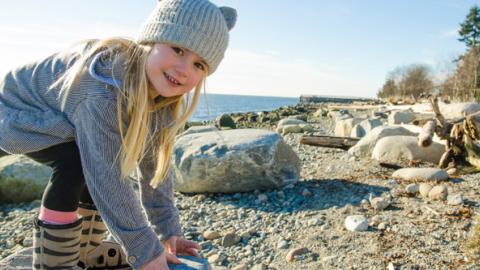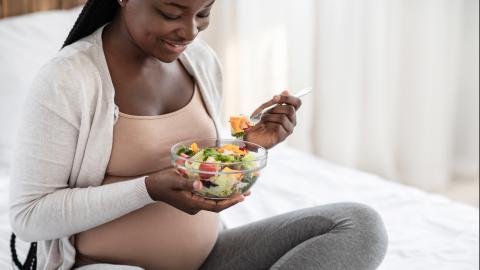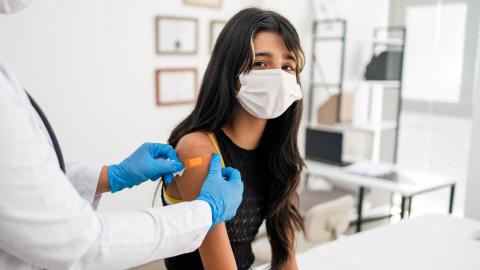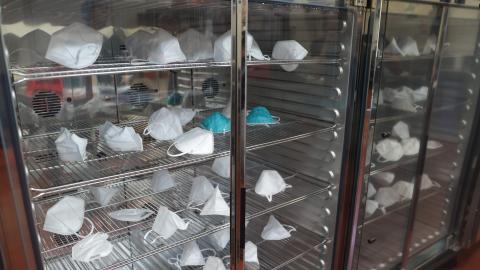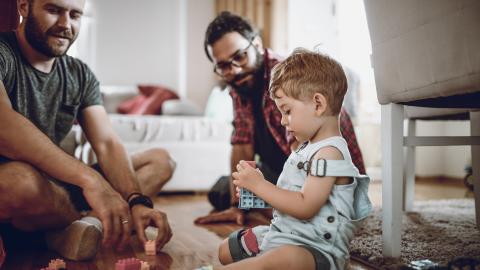Press release
New substance treatment services for women on the Downtown Eastside
Vancouver, BC – Vancouver Coastal Health, Atira Women’s Resources Society and BC Housing are supporting overdose response efforts by opening 38 substance use treatment beds for women in the Downtown Eastside. The supportive treatment units are located in Atira’s Rice Block building at 404 Hawks Avenue. Women are moving in this week.
“The pathway to recovery is different for everyone, which is why we are committed to providing a number of treatment options,” says Health Minister Terry Lake. “These new beds will provide women with the necessary supports to put their best foot forward on the road to recovery.”
The 38 new spaces are part of the Province’s commitment to open 500 new substance use treatment beds throughout the province, including 131 in the Vancouver Coastal region. More than 300 new substance use beds have already been opened in the past three years, and the remainder will be on-line by March 31, 2017.
Each of the 38 units will afford women a sense of privacy and security while they withdraw from substance use. Ten of the beds are earmarked for short-term stay while 28 others are longer term transitional beds for women who are stabilized in their substance use but need ongoing support, including life skills training. Vancouver Coastal Health and BC Housing are providing funding to Atira to deliver enhanced substance use treatment.
“Having substance-free spaces where women feel safe and supported is a pivotal step in the journey to recovery,” says Bonnie Wilson, Director of Home Support, Complex Rehab and Supported Housing, Vancouver Coastal Health. “Once women are away from situations where their safety is in jeopardy, they can begin addressing their physical and emotional health needs. Healthy, strong women nurture and care for themselves, each other, their families and our communities. Given the unprecedented and tragic overdose situation in our communities, we need this now more than ever.”
“Atira is thrilled to be embarking on this journey in supporting women who have been affected by violence and who are struggling with substance use, particularly in this time of epidemic deaths related to opioid use,” says Janice Abbott, Chief Executive Officer, Atira Women’s Resources Society. “The Rice Block will now be a place where women can come together, explore their substance use with a goal to either eliminate or reduce it, so that it is no longer harmful to their health or their relationships with their families and the community.”
For 35 years, Atira has been providing housing and support to women affected by violence and or abuse, and those struggling with substance use. Vancouver Coastal Health is also supporting women by creating greater access and stronger connections to health care in the Downtown Eastside, and is planning a number of initiatives in support of its Second Generation Strategy including:
-
Women’s Overdose Prevention Site - Vancouver Coastal Health is moving forward on a women’s-only overdose prevention site. VCH is partnering with Atira to create a small site that is street level, accessible, and embedded within other community-based supportive women’s services.
-
Women’s Intensive Case Management Team (ICMT) - A multidisciplinary, integrated outreach team will serve the most vulnerable, disenfranchised women of the Downtown Eastside. The ICMT will consist of outreach nurses, clinicians, a team leader and a peer support worker. Staff are in place and the ICMT will launch early next month.
-
Women’s Mobile Health Services Van - A specially equipped van will be used by the ICMT to connect with marginalized women who are less likely to engage with traditional health centres. This mobile health centre is expected to be operational this spring.
These new substance use treatment beds and other services are part of a range of measures supporting the overdose crisis response. As part of the response, law enforcement is working at all levels of government to interdict the supply of toxic drugs, and health officials are working to address the immediate and longer-term health needs. To that end, B.C. is expanding access to life-saving naloxone, supervised consumption services, and opioid addiction treatment medications and services, as well as improving the effectiveness of addiction treatment and access to appropriate substance use supports.
Vancouver Coastal Health spends more than $3.2 billion annually and is responsible for delivering health services to more than one million people in communities including Richmond, Vancouver, the North Shore, Sunshine Coast, Sea to Sky corridor, Powell River, Bella Bella and Bella Coola.
For media enquiries
Carrie Stefanson
Public Affairs Officer
Vancouver Coastal Health
Office: (604) 708-5338
Cell: (604) 312-1148
Email: carrie.stefanson@vch.ca


